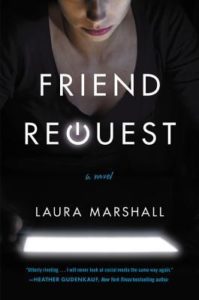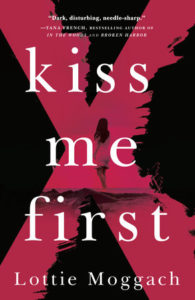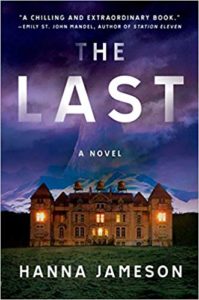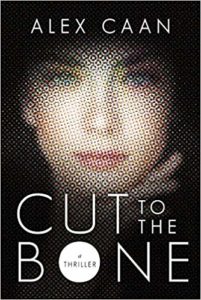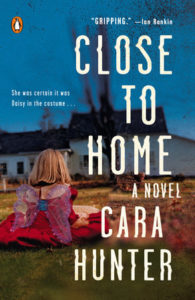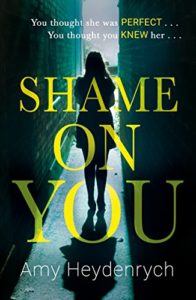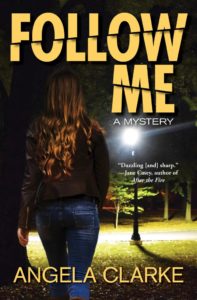It was supposed to be a brilliant, positive innovation, right? A way of making new friends and re-connecting with old ones, a way of reaching out into the world and interacting with it in brand new ways? Well, yes…and no. Social media can do all those things, but it also seems to have made deception, dishonesty and downright fakery easier to pull off than ever before: new tools to commit some of the oldest sins. Social media has given us an abundance of new ways in which to blur the line between reality and fantasy, between truth and invention—which makes it fertile ground for crime writers.
In my novel, Lies, Joe Lynch finds his life starting to unravel, faced with an adversary who uses social media and technology to stay out of reach and out of sight. As first his job is threatened, then his family, and then his life, Joe comes to realise that he’s being set up to take the fall for a murder—unless he can find his way through layers of deceit and misdirection to figure out what’s real and what’s not. But I’m certainly not the first to use social media to ratchet up the tension: here are some other writers who’ve done a great job of weaving it into their thrillers.
Friend Request by Laura Marshall
Louise Williams receives a friend request on Facebook from a school friend, Maria Weston. Nothing unusual in that, you’d think. Except Maria has been dead for 25 years. Or has she? The request stirs long-buried memories of a friendship gone sour, of dark deeds from the past returning to haunt the present. Of course, Louise accepts the request and before long she’s heading down the virtual rabbit hole, re-establishing long-severed ties, to find out if Maria is still alive or who it is that’s impersonating her online. Because if the truth about Maria ever comes out, Louise stands to lose everything. A brilliantly relatable premise, and not hard to see why it went on to become an international bestseller.
Kiss Me First by Lottie Moggach
In our permanently connected world, is it possible to die without leaving a trace? To simply slip away without leaving so much as a ripple behind? That is what Tess wants—so she uses a shadowy online community known as Red Pill to enlist a stranger’s help. That stranger is Leila, an awkward loner who is more comfortable interacting online than in real life. Leila’s role is not to facilitate the suicide but to act as a decoy: taking over Tess’s online identity, answering emails, posting updates on Facebook, so that her friends and family might be spared the pain of Tess’s death. A fascinating study of two very different people, and how modern life is changing our ideas of reality and identity.
The Last by Hanna Jameson
Imagine if the world ended, and the first you heard about it was on social media? For many of us (myself included) that’s probably how we would find out—in a tweet or a Facebook post or a message on WhatsApp. That’s how the dystopian thriller The Last opens, with historian Jon Keller sitting at breakfast in a Swiss hotel, watching the end of days on his cell phone. The gathered guests witness the obliteration of Washington, Berlin, London and other cities on their social media timelines before the internet goes down. Soon, only 20 guests remain in the hotel, trying to work out what you are supposed to do after the bombs have dropped. Then the body of a young girl is discovered, and Keller sets out to discover which of the survivors is also a murderer…
Cut to the Bone by Alex Caan
Ruby Day is a rising star of YouTube, a vlogger with a million teenage followers of her lifestyle tips and fashion advice. Ruby is also missing, and it isn’t until a video is posted online that her fans realize why: because the video shows her sprawled in the dirt, pleading for her life. Ruby’s army of fans are hysterical, the media are having a field day and as the investigation hurtles out of control in the glare of publicity, it becomes clear that the world of YouTube vloggers and social media is far darker than it appears. An excellent debut thriller that lifts the lid on YouTube stardom and explores the powerful cocktail of money, fame, and influence that fuels it.
Close to Home by Cara Hunter
Every major police investigation now seems to attract an army of armchair detectives and instant experts, opining on social media about the guilt of suspects and the perceived failures of the police. Close to Home ingeniously incorporates that noisy buzz of opinion into the narrative, the story of a kidnapping investigation interspersed with tweets as (mostly ill-informed) members of the public alternately vent at the police and hurl accusations at everyone involved. Cara Hunter expertly builds up the pressure as her troubled protagonist DI Adam Fawley strives to bring eight-year-old Daisy Mason back to her family.
The Circle by Dave Eggers
The Circle is one of the world’s most influential internet companies—a global multi-billion-dollar concern run out of a sprawling California campus (sound familiar, anyone?). It promotes a scarily plausible near-future in which ‘secrets are lies, sharing is caring, privacy is theft’—a world in which your every movement, purchase, even thought, can be tracked. When Mae Holland lands her dream job at the Circle, she becomes increasingly sucked into the company’s groupthink that everything—literally everything—must be shared and streamed live for consumption by everyone else. The story of her rise up the ranks of the Circle, and corresponding descent into its cult-like mentality, makes for particularly creepy reading.
Shame on You by Amy Heydenrych
The ‘perfect’ life, as shown on Instagram: filtered and wholesome and artfully composed. Deep down we know it looks too good to be true, but millions of us still swallow the image whole. Shame on You is a clever exploration of Instagram fame chased by food bloggers like Holly, who’s built her identity, her career, her very existence around the cult of ‘clean eating’. Sugar-free, gluten-free, grain-free, plant-based, the ‘perfect’ diet, the kind of diet that can beat anything life throws at you – even cancer. But when a fan takes her advice literally, with tragic consequences, Holly’s life starts to come apart at the seams. Echoes of real-life cases like that of Australian food blogger Belle Gibson made this thriller all the more timely.
Follow Me by Angela Clarke
The first book in Angela Clarke’s Social Media Murder series is disturbing enough to make you want to take a vacation from Twitter. The ‘Hashtag murderer’ is posting cryptic clues online, pointing to their next target—taunting the police and terrifying the public in equal measure. In a particularly nice twist, Angela Clarke starts each chapter with an update of the killer’s social media following and follower status. As the body count rises, so does the number of people following the killer’s account—rewarding them with precisely the recognition they crave, and ensuring more blood is spilt…


